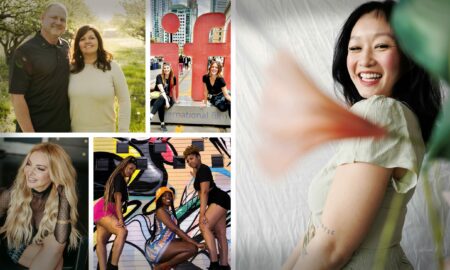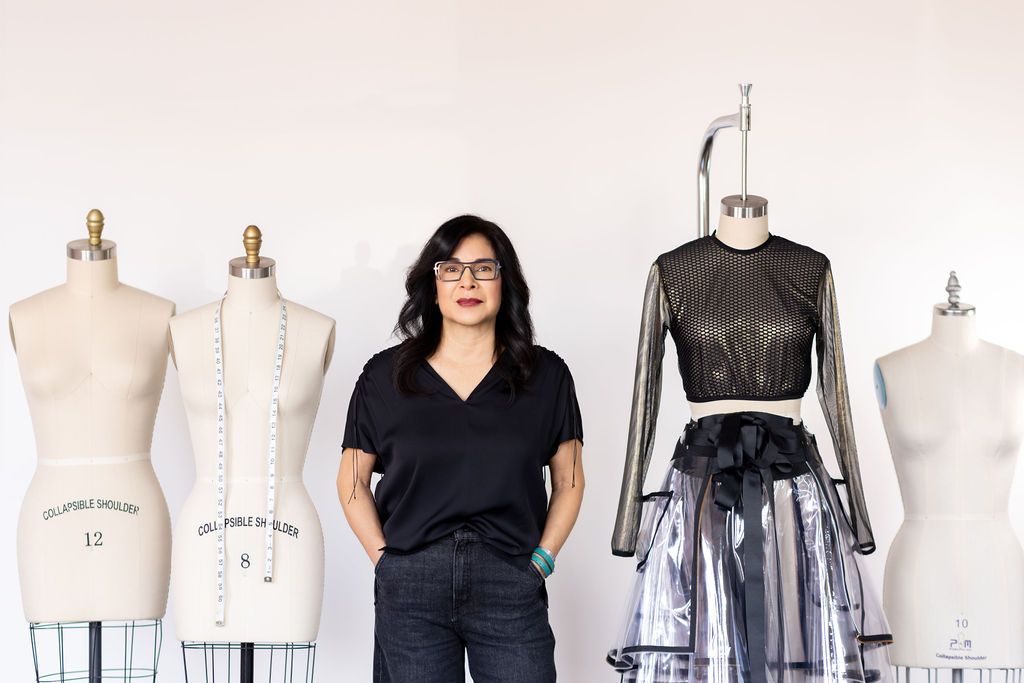

We recently had the chance to connect with Laura Treas and have shared our conversation below.
Hi Laura, thank you so much for joining us today. We’re thrilled to learn more about your journey, values and what you are currently working on. Let’s start with an ice breaker: What do you think is misunderstood about your business?
Fashion is actually geometry, sewing is physics and patterning is engineering! There are many jobs attached to fashion to accomplish all of the steps it takes to get to the final product. We mostly see great photos of fashion but before that someone has had to engineer a pattern and someone else has had to draw the technical sketch of the product. There is the sourcing of the fabrics and any components, how to actually construct it, and finally a real person has to sew it correctly. All of these steps require a high-level skill set to be successful.
Taking an idea from a flat sketch rendering and turning it into a 3D garment that is sellable takes a team of people that have many hours of experience.
Can you briefly introduce yourself and share what makes you or your brand unique?
I’m Laura Treas, Founder of Fashion Tech Kansas City, and I’m a Slow Fashion/Small Batch Manufacturing Pioneer that advocates for the Needle Trades. I founded a high-touch agency that helps clients’ dreams come true by turning their ideas into a 3D product with prototyping, patterning and sourcing the materials to make the product. Small Batch Manufacturing is perfect for start-ups as it allows for precise production runs, ensuring only necessary amounts are made. This minimizes unsold inventory and supports domestic manufacturing. It’s a Win-Win.
What makes my agency unique is the high-touch aspect of holding the clients hand throughout the process as most do not know the manufacturing industry. You can have a great idea but you need to acquire the steps to get prepared for manufacturing multiples. You want your product replicated correctly for a successful brand.
I have a unique business model that uses micro factories for sewing with stitchers I personally train on each product. Micro factories support ethical practices and reduce the environmental impact associated with large-scale manufacturing. This approach offers flexibility for the owners and the ability to adapt quickly to market changes. Small brands can stay nimble and reduce waste making it financially sustainable. Again, it’s a Win-Win.
Artisan Small Batch Academy is my new endeavor to help anyone wanting to become an Independent Sewing Contractor. It’s a Membership based model so that the members can have access to my 16 years of experience to help them anytime they need it. We can talk on the phone, Zoom, or FaceTime through a problem or question. I want people to say “Yes” to jobs that will stretch their expertise with a new product but the internet doesn’t have the correct help. Many stitchers need the flexibility of being their own boss for various reasons and our country needs more domestic manufacturing. I’m here to help!
Okay, so here’s a deep one: Who taught you the most about work?
My grandparents taught our entire family about work. They worked the stockyards as meat cutters successfully enough to retire in their 50’s and open a restaurant. My immigrant grandfather owned a parking lot downtown as a side hustle, rode a Harley and loved his fedora hats. They told stories of the depression and feeding hungry people humble beans to help them out. They are still the inspiration of our family. They left a legacy we try to live up to. I come from a family of makers and doers. This gave me the sense that I could do whatever I put my mind to. Everyone also has extra curricular activities, hobbies or volunteer passions. All of this builds you up to believe you can accomplish your idea.
What did suffering teach you that success never could?
I’m actually a Level Two Trauma Survivor and have been meditating since I was a teen. Suffering teaches us how strong we can be in ways success can’t. Suffering also teaches empathy and sympathy for others. This has helped me with teaching and training stitchers besides my approach to coaching clients. The things I have been through never compare to my worst work day and you learn to not be afraid even when you make mistakes. I don’t beat myself up for too long. I focus on what did I learn and it’s just a moment in time.
I think our readers would appreciate hearing more about your values and what you think matters in life and career, etc. So our next question is along those lines. What would your closest friends say really matters to you?
Those that have known me the longest would say I really believe that we should actively give back to the community with outreach of any kind. If everyone gave some time to one other person that could use your help that many more people would feel cared for. Not financial help but giving time to another makes a difference in their lives and what you get back is amazing.
Before we go, we’d love to hear your thoughts on some longer-run, legacy type questions. What is the story you hope people tell about you when you’re gone?
I hope people tell their story of how I went out of my way to help them. Even when it put my schedule to the test. Or my budget. How I showed up when no one else did. I feel compelled to support people when they need it. It’s like a calling for me.
Contact Info:
- Website: https://fashiontechkansascity.com/
- Instagram: https://www.instagram.com/lauratreas/
- Linkedin: https://www.linkedin.com/in/laura-treas-693a64378/
- Facebook: https://www.facebook.com/laura.treas
- Youtube: https://www.youtube.com/@FashionTechKansasCity-s3x/videos
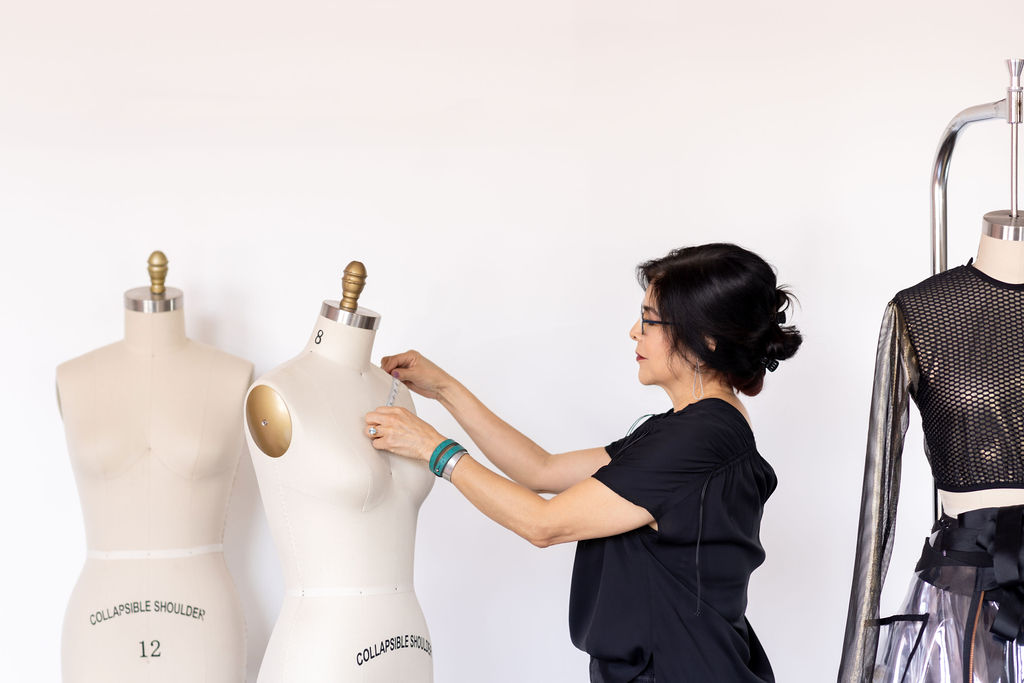
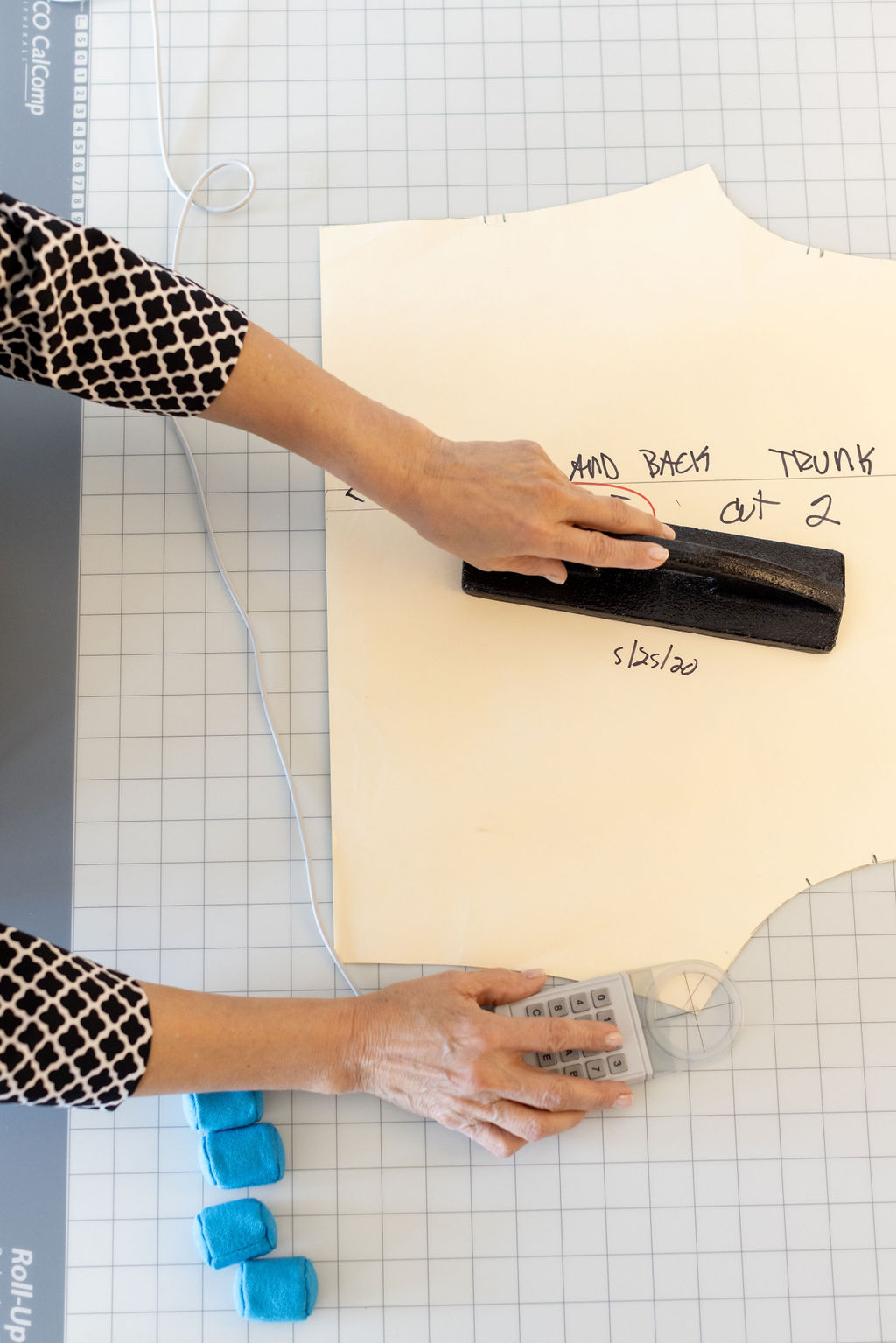
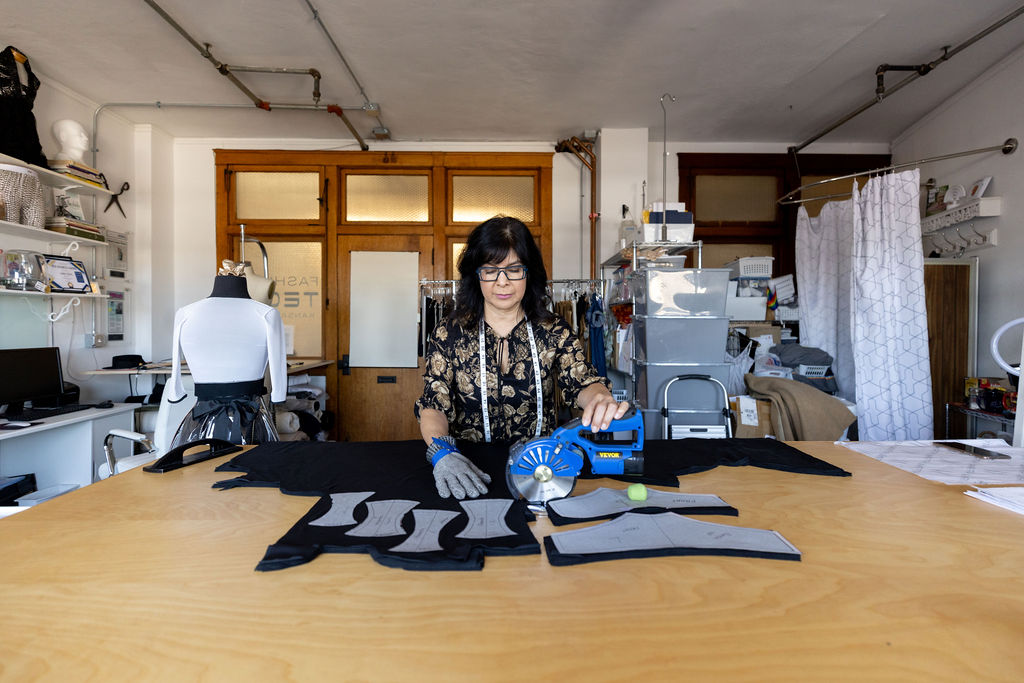
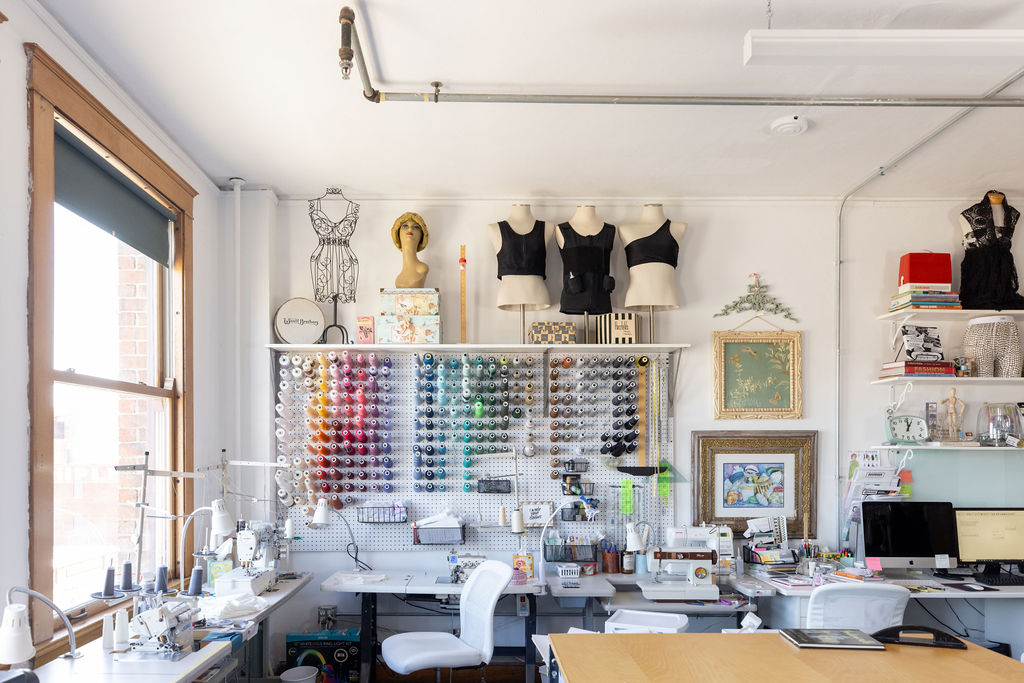

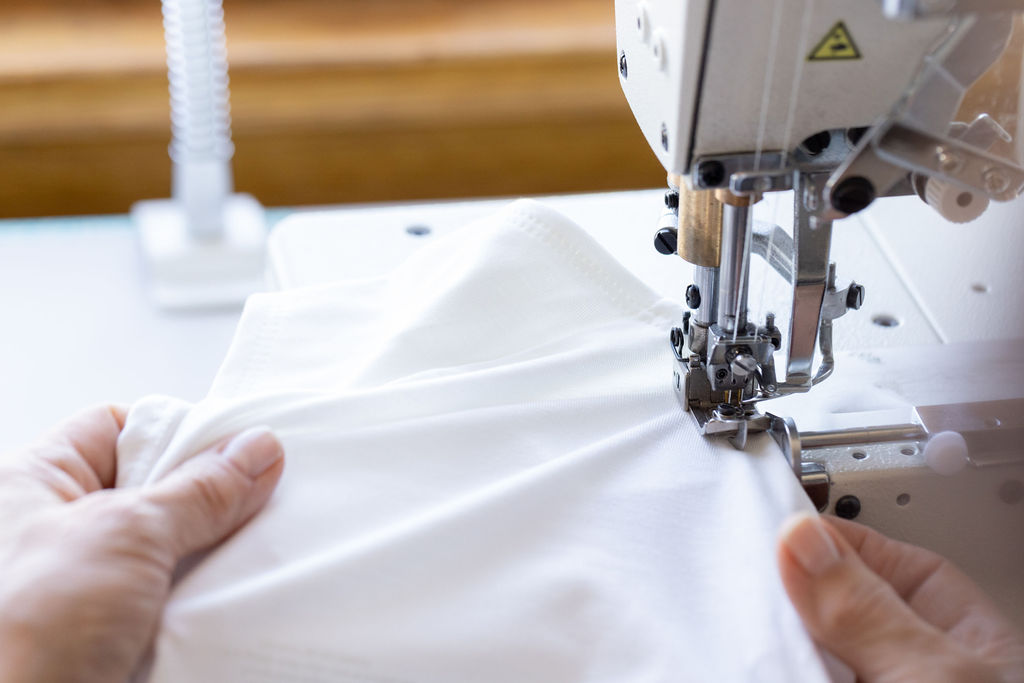
Image Credits
Rita Clark-Heirloom Photography

